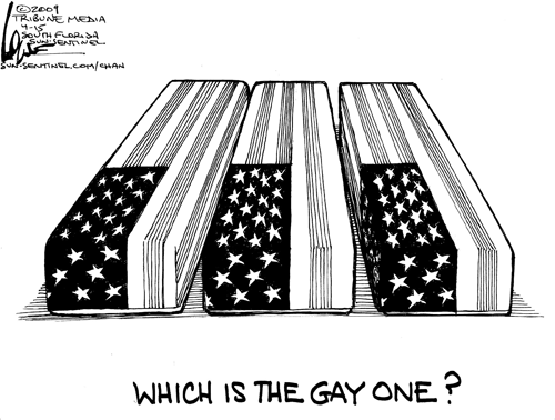
Image credit: Chan Lowe, The Lowe Down
The above cartoon, republished yesterday on the artist’s blog, makes a very effective argument against Don’t Ask, Don’t Tell. The use of flag-draped coffins, signifying shared tragedy, suggests that dying for one’s country has little to do with sexual orientation and that is rather the work
that an individual does—in this case, sacrificing his/her life for the United States—that matters. In this kind of public sacrifice, the image suggests, everything individual is erased. However, this message seems more complicated when considered in relation to one of Tim Turner's earlier posts and the wider cache of meanings that these coffins suggest.
Recent comments
2 years 29 weeks ago
2 years 44 weeks ago
2 years 44 weeks ago
2 years 50 weeks ago
3 years 4 weeks ago
3 years 4 weeks ago
3 years 4 weeks ago
3 years 6 weeks ago
3 years 6 weeks ago
3 years 6 weeks ago